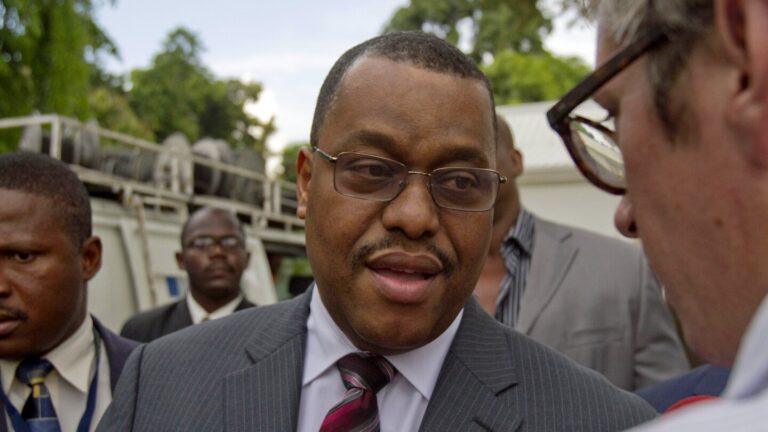SAN JUAN, Puerto Rico (AP) — U.N. development expert Garry Conille was named Haiti’s new prime minister Tuesday night, nearly a month after coalitions within the country’s splintered transitional council tried to select someone else for the post.
The long-awaited move comes as gangs continue to terrorize the capital, Port-au-Prince, shooting in once-peaceful neighborhoods and using heavy machinery to destroy several police stations and prisons.
City Councilman Louis-Gerard Gilles told The Associated Press that six of the seven voting council members selected Conille early Tuesday. He said one council member, Laurent St. Cyr, did not vote because he was not in Haiti.
Conille has been UNICEF’s regional director for Latin America and the Caribbean since January 2023, and previously served as Haiti’s prime minister under then-President Michel Martelly from October 2011 to May 2012. He succeeds Michel Patrick Boisvert, who was appointed interim prime minister after Ariel Henry resigned in writing in late April.
On February 29, while President Henry was on an official visit to Kenya, a coalition of powerful gangs launched coordinated attacks, seizing a police station, launching a shooting spree at Haiti’s main international airport and storming the country’s two largest prisons, freeing more than 4,000 inmates.
The attacks have locked Mr Henry out of the country and kept the airport in the capital, Port-au-Prince, closed for nearly three months.
The troubled Caribbean nation of Haiti is still seeing a surge in gang violence in and around the capital as Conille takes over as he awaits the deployment of a U.N.-backed police force from Kenya and other countries.
Conille studied medicine and public health and helped develop medical care in impoverished areas of Haiti, as well as helping coordinate recovery efforts after the devastating earthquake in 2010.
Conille worked for the United Nations for several years before being appointed prime minister by President Martelly in 2011. He resigned within a year after clashing with the president and his cabinet over an investigation into government officials with dual nationality, which is not permitted by the Haitian constitution.
Conille faces the daunting task of lifting Haiti out of grinding poverty while quelling rampant gang violence, with the latest inflation rate hitting a record 29 percent. Gangs, which control at least 80 percent of Port-au-Prince in recent years, have forced more than 360,000 people from their homes and continue to control key routes from the capital to the north and south of Haiti, often paralyzing the movement of vital supplies.
Conille’s election as prime minister came just weeks after a four-person coalition within the nine-member transitional council elected former Haitian sports minister Fritz Belizaire as prime minister in late April, an abrupt announcement that angered many. Critics say that due process as outlined in the framework that established the council was not followed, and a new process for selecting a prime minister was launched, with dozens of candidates submitted for consideration.
This drawn-out process has been criticized by many, including Montana Accord, a Haitian private organization represented on the council.
In a statement on Tuesday, the group accused the council of failing to take “serious action” since it was established, saying “gangs are expanding their territory and increasing crime while people’s suffering is worsening.”
He also accused the council of lacking transparency in selecting a new prime minister, not disclosing the criteria it used or the names that were submitted.
Tet Kale party leader Line Baltazar called for transparency from the council in an interview with local radio station Magic 9 on Monday and said the prime minister’s selection appeared to be improvised.
In addition to selecting a new prime minister, the nine-member council, of which seven have voting power, must appoint the necessary interim electoral committees before elections can be held. The council’s term is non-renewable and ends on February 7, 2026, the day a new president is scheduled to be sworn in.
In addition to choosing a new prime minister, the council is also responsible for selecting a new cabinet and calling a general election by the end of next year.
The council’s members are Emmanuel Vertilaire of the Petit Déserant party, headed by former senator and presidential candidate Jean-Charles Moïse, Smith Augustin of the EDE/RED party, headed by former prime minister Claude Joseph, Fritz Alphonse Jean of the Montana Pact, Leslie Voltaire of Fanmi Lavalas, the party of former president Jean-Bertrand Aristide, Louis Gérard Gilles of the 21st December coalition, which supports former prime minister Ariel Henry, Edgar Lebrun Fils of the 30th January group, which represents parties including the party of former president Michel Martelly, and Laurent Saint-Cyr from the private sector.

